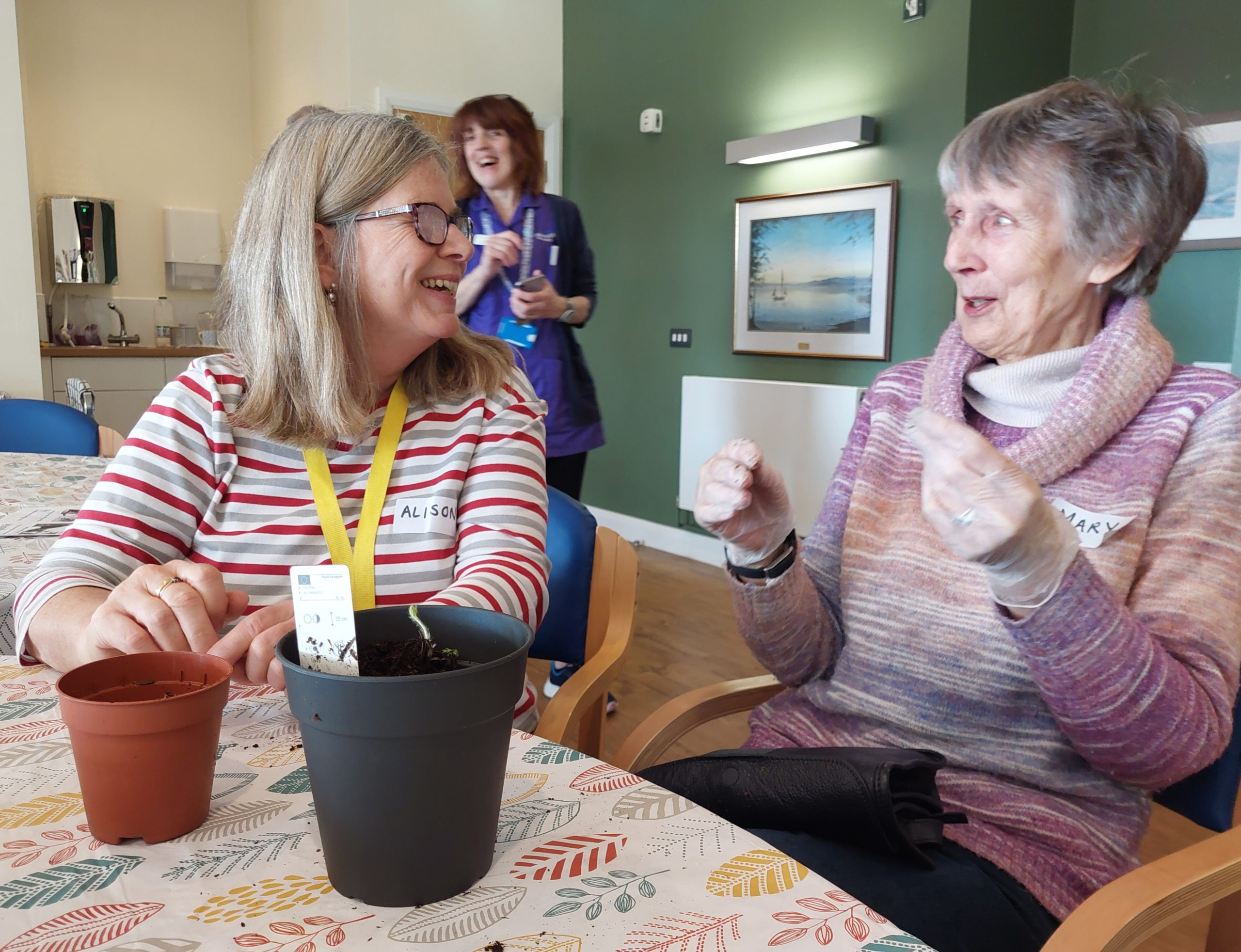“It was very isolating trying to help someone with Alzheimer’s so having something like Dementia Cafes means you can sit with someone who gets it”
Here at St Mary’s Hospice, we see volunteers give up their time to help us for a whole host of reasons. Some people have been personally touched by the services and others just want to help the community.
Alison Charlesworth dedicates her time each week to helping with the Dementia Cafes. But before getting involved with the hospice, Alison, like many others, didn’t know the extent of the services we offer. Lots of people across our community often have the misconception that the hospice only provides end of life care.
However, that isn’t true as well as the In-Patient Unit and Hospice at Home teams; we have several services for patients and their families including grief yoga, dementia cafes, complementary therapies, a choir and more.
Alison’s mum suffered from Dementia and Alzheimer’s and when she saw the social media posts calling for volunteers to come forward and help with the Dementia Cafes, this struck a chord.
She explained: “I first got in touch with Janice (who runs some of the cafes) and then once you are through the door you realise all the other services that are going on. It’s coming up to two years that I’ve been a volunteer.”
Through helping at the Dementia Cafes, Alison realised all the other volunteer opportunities that are available, both at the hospice in Ulverston and at the community hub in Barrow.

Alison cared for her mum with Alzheimer’s and said that having something like the Dementia Cafes makes you realise you aren’t alone in your journey. She said: “My mum died in 2021 and it was during Covid when all services ground to a halt. It was very isolating trying to help someone with Alzheimer’s so having something like Dementia Cafes means you can sit with someone who gets it.
“It’s OK not to be OK.”
Alison has loved her time volunteering, and it gives her a sense of accomplishment being able to help others. She added: “I’ve found it absolutely brilliant. I said to Janice one week it’s my happiest time of the week and she said ‘yeah I can see that’.
“The other volunteers and staff are so supportive and encouraging and the clients really enjoy having someone extra to talk to. At the Dementia Cafe you can never have too many volunteers because everyone needs someone to have a conversation with.
“The people that are caring for someone with dementia might not have a normal conversation with someone all week.”
Alison is encouraging others to sign up to be a volunteer, she, like many others, had her doubts at first but said hospice staff made her feel so welcome and she has gained so much experience.
